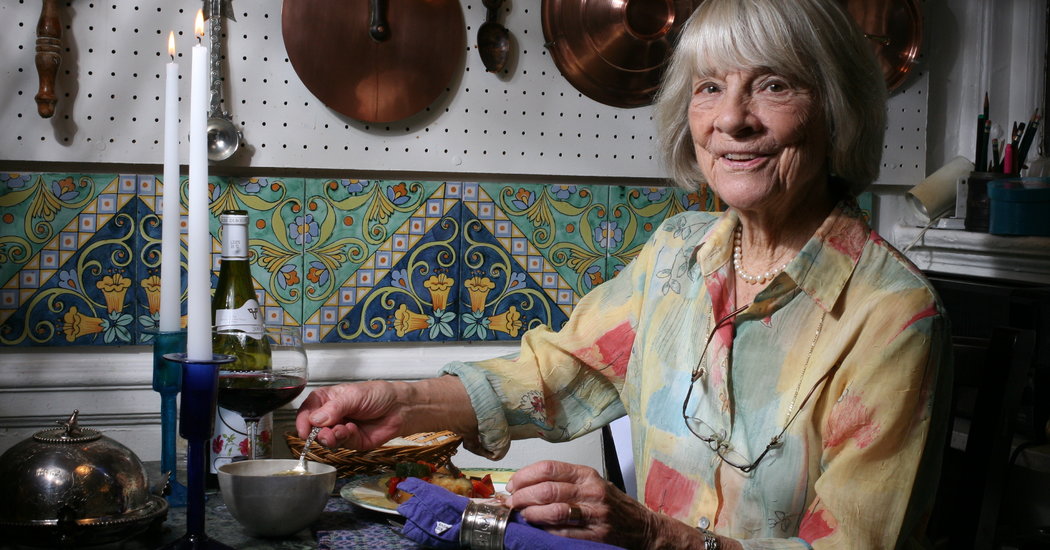
THE EDITOR: How Publishing Legend Judith Jones Shaped Culture in America, by Sara B. Franklin
People outside the publishing industry often wonder what it is, exactly, that editors do. “Most of them do nothing,” one of the most storied, Robert Gottlieb, told the author Sara B. Franklin. Nothing is as bad as too much, and yet I’ve long thought the profession — not for nothing does it include “book doctors” — should have its own version of the Hippocratic oath.
Judith Jones, the subject of Franklin’s essential if adulatory new biography, “The Editor,” was the rare text surgeon who also had an excellent bedside manner. Jones, who died in 2017 — six years before Gottlieb, who came in over her head to run Knopf — was widely memorialized as a culinary editor, and rightly so. A passionate home cook, she introduced Julia Child to America and published books on a wide range of cuisines by Edna Lewis, Madhur Jaffrey, Claudia Roden and many others. She fended off Big Agriculture with small, local asparagus spears and reawakened a national palate lulled by midcentury convenience foods.
But as “The Editor” makes painfully apparent, Jones’s contribution to the history of regular old literature has often been minimized or outright erased. A certain recessiveness is part of the job, of course, and yet mention of her name can draw blank stares even among the best-connected in “the biz.”
We owe to her nothing less than “The Diary of Anne Frank” reaching these shores and, after she met him in a hallway, almost the entirety of John Updike’s oeuvre. Ditto Anne Tyler’s. Jones was also a gravitational force, for better and worse, in Sylvia Plath’s brilliant and shortened arc. Working with dozens of other authors, helpfully listed in a coda, she burnished and sustained Knopf’s reputation as the most prestigious publishing house in the country while also earning it piles of money.
Franklin, who has a Ph.D. in food studies, met Jones for an oral-history project toward the end of her life, when “she wore her age like a fact,” as she nicely writes. Cooking and confiding, they became friends. At the funeral, a family member pulled her aside and offered turnkey access to two rooms filled with personal papers. It isn’t so often you flip to the acknowledgments page of a biography and read valedictory lines to the subject like “I loved you so much; I love you still.” But perhaps this is in keeping with Jones’s own defiance of patriarchal convention.



